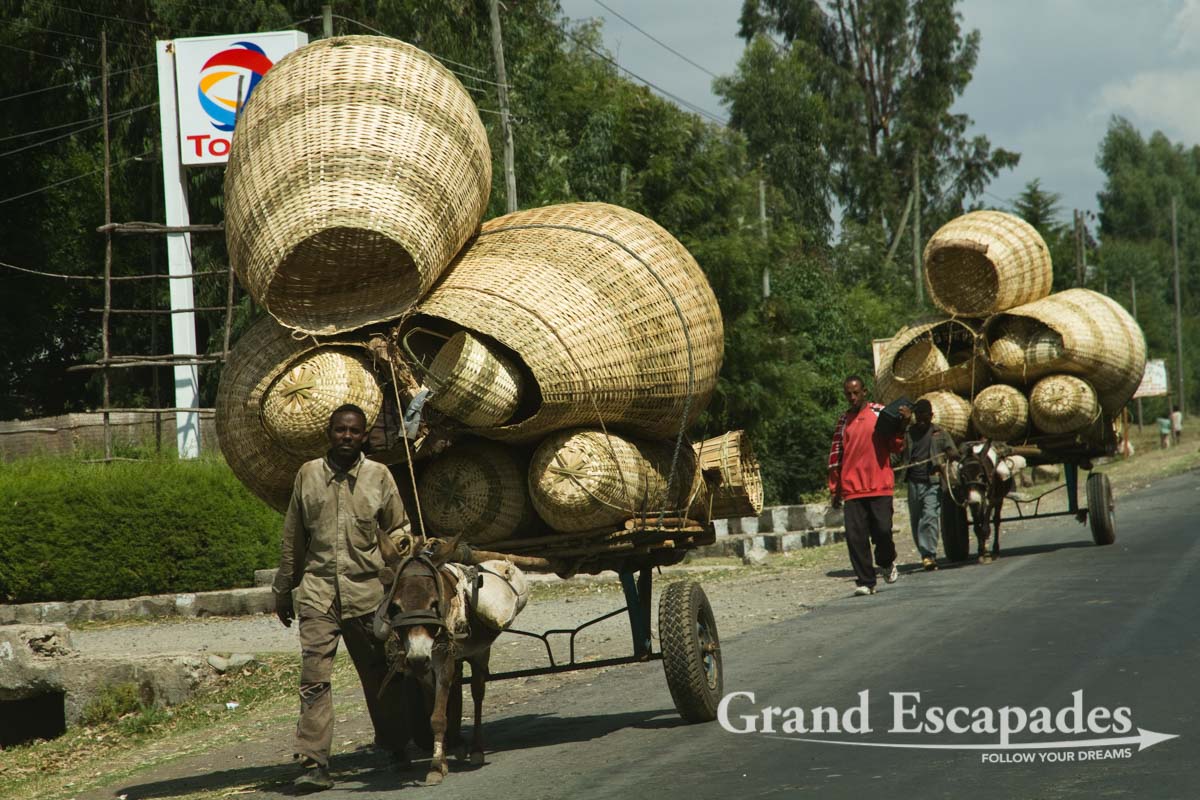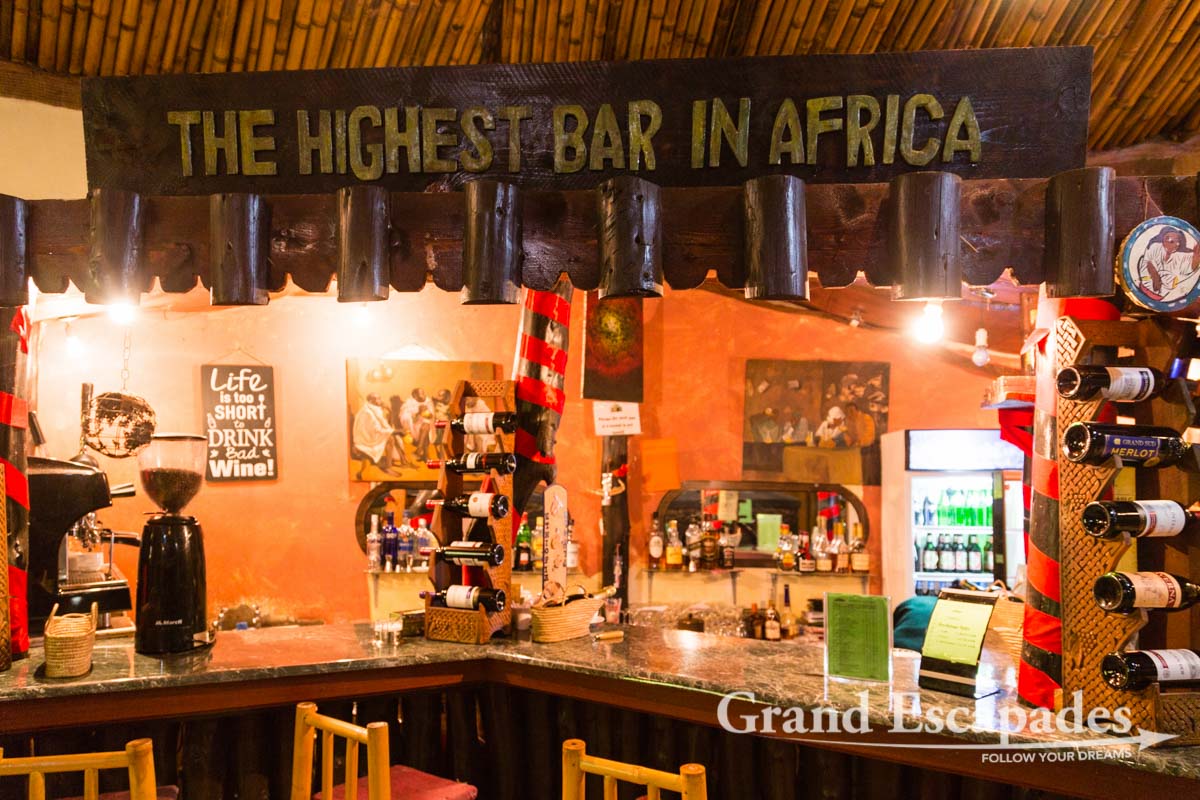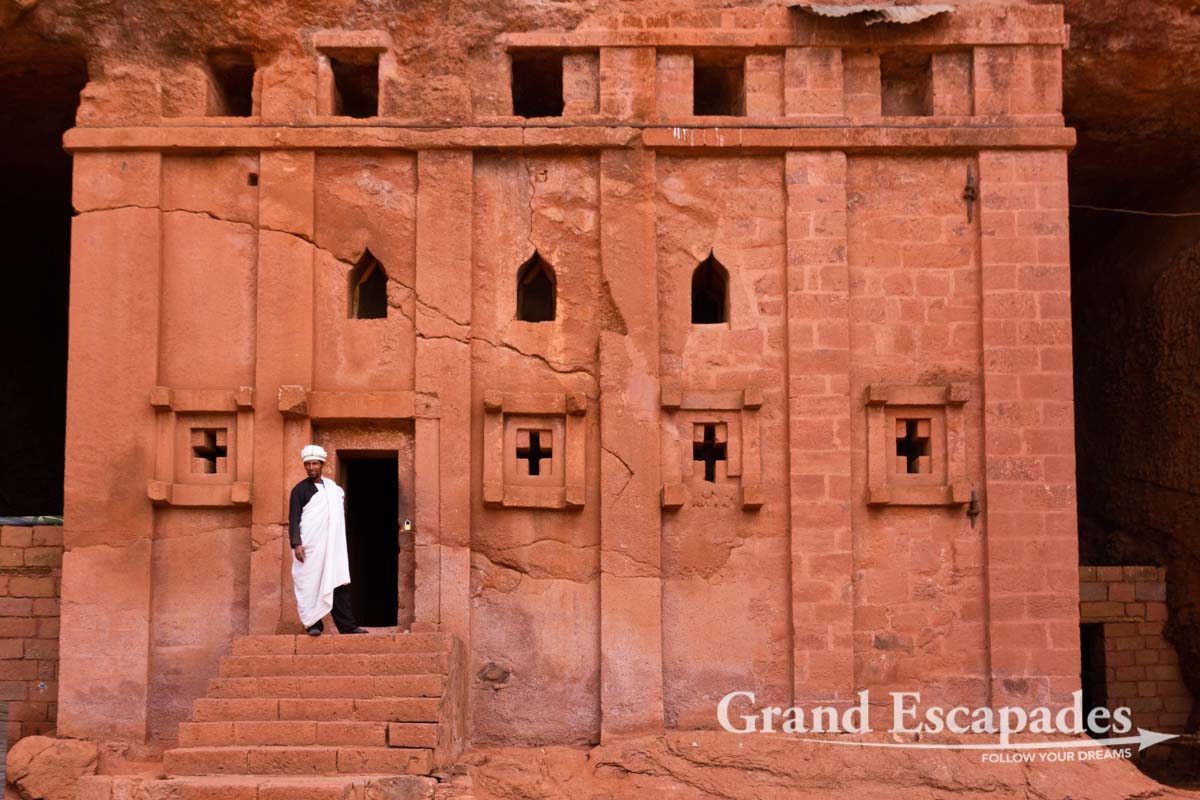The roads in the Omo Valley are typical for thousands of kilometers of roads in rural Ethiopia. The vehicles, mainly 4WD and a few public busses drive on a bumpy dirt road that runs along a brand new road under construction. All stages of roadwork can be seen. To prevent cars from driving on the unfinished road mid-sized stones are placed on the sandy surface. There must be millions of these of these “blocking stones” – How many hours it took to put them there and remove them we will never be able to guess!
But the roads under construction do not go unused. Villagers and cattle trot along it undisturbed by the few motor vehicles on the dirt road.
The best road we travel was from the small city of Afrera in the Danakil Depression down to the Djibouti road. It runs for hours along extensive lava fields, no towns, no villages, nothing! The Chinese built it for one purpose only – to transport the salt from Lake Afrera to Addis or Djibouti.
There are other paved roads, some good, some full of potholes, but it is never possible to travel fast. Just to give an idea, the 350 km trip from Arba Minch to Addis via Shashemene on a paved road took 9 hours. Huge cattle herds occupy the road, even in bigger cities. These creatures do not budge easily and it takes a lot of honking till they finally move. Donkey-drawn carts need to be passed and of course there is a never ending caravan of people on the road. Walking where? Very often we did not pass a village for a long time, but nevertheless human traffic was considerable. Maybe the statistics giving in a guide books helps explain: only 35% of Ethiopians live near a road. So we could not possible see the places where these people were heading.
Especially on market day the procession of villagers is impressive. We truly regret that we never asked any of them how long they had been on road, was it hours, a day? Women were always buried under incredible loads and even what looked like a small bundle could be incredible heavy. Add the scorching heat and straps made from plants that cut deeply into the flesh, not cushioned fastenings like our rucksacks.
Nearing Addis on the Djibouti road is a different story, the traffic is abysmal. The road is clogged with trucks importing everything from gasoline to food – it is Ethiopia’s only lifeline to a port.






